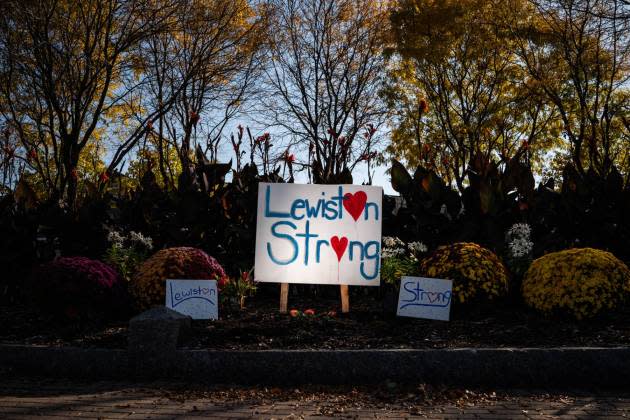Army Warned Maine Suspect Should Not Have Guns, Three Months Before Mass Shooting

In May, family members of Robert Card, 40, contacted the sheriff’s office stating that Card’s mental health had begun to decline in January. “They were concerned for his well being and said that Mr. Card had access to firearms,” Sheriff Joel Merry said in a statement issued Monday evening.
Army representatives informed the sheriff’s office that “they would ensure that Card received medical attention,” according to the statement, which added, “Mr. Card’s unit sergeant shared his plan to speak with Card.”
More from Rolling Stone
Maine Shooting Has Right-Wingers Going After Their Favorite Scapegoat: The FBI
Divers Will Search River as Manhunt for Maine Shooter Continues
After receiving a request for a wellness check from the Army Reserve, Sagadahoc County Sheriff’s Office made two visits to Card’s residence, but failed to make contact with him. On Oct. 25, Card killed 18 people and injured 13 more during a rampage at a bowling alley and a bar in Lewiston, Maine — America’s deadliest mass shooting this year.
Reports released by the sheriff’s office and Army reveal the extent to which both the Army and police were aware of Card’s increasingly paranoid behavior.
On Tuesday, an Army spokesperson informed Rolling Stone that shortly after arriving with his Army Reserve unit for their annual training on July 15, Card was transported to a military medical treatment facility (Keller Army Community Hospital) at West Point in New York. According to the Army’s timeline of Card’s activities, unit leadership “understood that Card was at Four Winds Hospital in New York,” which they described as in the “civilian sector hospital,” and not under the Army or Defense Health Agency. The Army stated that although the unit supported Card’s West Point summer training, there are no records indicating he participated in any training.
Card returned to his home in Maine on Aug. 3. At this time, the Army directed that while on military duty he should not have a weapon, handle ammunition or “participate in live-fire activity.” The Army also determined him to be “non-deployable,” and his company commander was notified of the restrictions.
A letter from the U.S. Army Reserve included in a police report, per the Portland Press Herald, stated that while at West Point, a friend of Card’s said that Card had told him he “has guns and is going to shoot up the drill center at Saco and other places.” The letter continued, stating that friend was “concerned that Card is going to snap and commit a mass shooting.”
Deputies visited Card’s home twice on Sept. 15 and Sept. 16, according to Merry’s statement. On the second visit, Card’s car was outside the trailer, but the officers said they did not see him or hear any voice — though a deputy stated he thought he might have heard someone moving inside.
According to the report, the deputy made contact with Card’s unit commander, who said Card no longer had any weapons from the reserve unit and said they were trying to get him treatment and “thought it best to let Card have time to himself.”
On Oct. 18, a File 6 — an attempt to locate teletype — to other law enforcement agencies was cancelled.
“My office will evaluate our policies and procedures for how we conduct wellness checks with the goal of making any improvements that are in the interest of public safety while balancing the rights of individuals,” Merry said in Monday’s statement.
This article was updated on Oct. 31 at 7:10 p.m. E.T. to include statements from the U.S. Army.
Best of Rolling Stone
